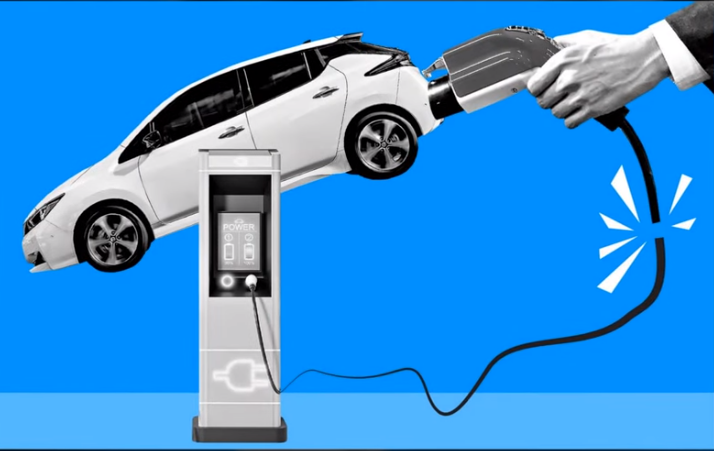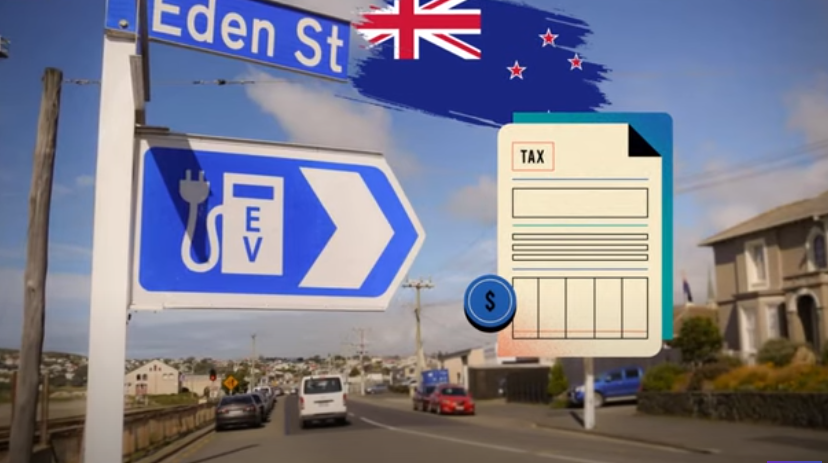The challenge of revenue source from fuel taxes poses many challenges

The trend towards electric vehicles is becoming increasingly popular, leading to changes in tax and fee policies for clean energy vehicles. Many countries such as the UK, New Zealand, Israel, and most US states have been adjusting tax policies to apply new fees for electric and hybrid vehicles. The goal of these changes is to ensure budget revenue to compensate for the declining revenue from special consumption taxes on gasoline and diesel, a revenue source that is narrowing as the number of electric vehicles on the road increases.
Adjustments to tax and fee policies vary widely, from road taxes, road usage fees based on distance traveled, to taxes on public charging stations. However, this trend is causing concern among electric vehicle owners and green transportation advocates, fearing that new taxes and fees will hinder the transition from fossil fuel vehicles to more environmentally friendly vehicles. It is worth noting that these taxes and fees are being applied as the growth rate of electric vehicles is showing signs of slowing down, even though global electric vehicle sales are predicted to reach record highs this year.
But decreasing profit margins and slowing growth rates are causing many car manufacturers to reconsider their investment plans for electric vehicles. The clearest evidence of this is billionaire Elon Musk, CEO of Tesla, recently announcing the closure of the supercharger business unit and the dismissal of hundreds of employees due to declining revenue. Rachel Aland, director of the transportation department at the American Council for an Energy-Efficient Economy, a research organization based in Washington DC, believes that many electric vehicle tax policies do not receive support, and while increasing electric vehicle taxes is necessary, it is very difficult to implement.
According to Aland, revenue from fuel taxes has decreased in recent years due to the increasing efficiency of internal combustion engine vehicles and the popularity of electric vehicles, putting additional pressure on this important revenue source for governments. The International Energy Agency (IEA) predicts that by 2030, electric vehicles will reduce global crude oil consumption by about 6 million barrels per day. Meanwhile, global oil demand in 2020 was 102 million barrels per day.
IEA data also shows that the shift to electric vehicles has caused global revenue from gasoline and diesel taxes to evaporate $10 billion last year, a loss that is expected to increase to $110 billion by 2035 if countries achieve their electrification goals. This means that governments will lose a significant revenue source that has been used to fund road maintenance and improve transportation. Although some countries are trying to offset this with new taxes and fees on electric vehicles, this new revenue source is still very small compared to the revenue loss from fuel taxes.
Is road usage fee for electric vehicles a solution or a barrier?

Despite facing many opposing opinions, finding alternative revenue sources for dwindling fuel taxes is essential. New Zealand is a pioneer in implementing road usage fees based on distance traveled for electric and hybrid vehicles. Since April 2024, this policy has officially taken effect with the aim of increasing road maintenance revenue in the context of decreasing revenue from fuel taxes. Specifically, owners of pure electric light vehicles will have to pay 76 New Zealand dollars, equivalent to 46 US dollars, for every 1000 km traveled, a fee similar to what is currently applied to diesel vehicles. On the other hand, owners of hybrid vehicles will have to pay 38 New Zealand dollars for every 1000 km traveled.
Explaining this policy change, New Zealand Minister of Transport Simeon Brown stated that the road usage fee for electric vehicles is a measure to ensure fairness and equality. This helps all road users contribute to road maintenance. However, this policy has faced opposition from electric vehicle advocacy groups and environmental protection organizations. They believe that road usage fees will hinder the proliferation of non-polluting transportation, while Israel is also proposing to apply a similar road usage tax for electric vehicles, expected to take effect from 2026. Under this proposal, electric and hybrid vehicle owners will have to pay about 4.2 US dollars for every 100 km traveled.
The Israeli Ministry of Finance and Tax Authority stated that this new policy aims to address traffic congestion and offset the surge in the budget due to the conflict with the Hamas Islamic organization in the Gaza Strip. However, not every country chooses to apply road usage fees. England and Iceland are prime examples. Instead of applying distance-based fees for electric vehicles, the governments of these two countries have begun to phase out or reduce incentives for electric vehicle drivers.
Professor David Metz, an expert at the London School of Economics' Transport Studies Center, stated that the UK government is avoiding applying road usage fees for electric vehicles, as this is a sensitive issue. He said all UK politicians understand that imposing road usage fees for electric vehicles at the current time is very difficult. Professor Metz also believes that a new road usage fee system is needed not only to compensate for the revenue loss from fuel taxes due to the increasing number of electric vehicles but also to minimize traffic congestion and gradually eliminate polluting vehicles.
Is there a sustainable solution?

In the US, at least 38 states are implementing annual registration fees for electric and hybrid vehicle owners. Unlike gasoline-powered vehicles, US residents must pay annual registration fees for both electric and hybrid vehicles. For example, in New Jersey, the state government enacted a new law last month applying a registration fee of 250 US dollars for electric vehicle drivers this year. This fee will increase by 10 dollars each year until it reaches 290 dollars.
Therefore, electric vehicle buyers will have to pay registration fees for 4 years, equivalent to 1000 US dollars if they purchase a vehicle this year. All revenue generated from this new fee policy will be transferred to the transportation fund to support road maintenance and repair activities for the Cong Bridge in New Jersey. However, this policy has faced many opposing opinions. Corey Cantor, an electric vehicle market analyst at the new energy finance company Bloomberg, warned that applying annual registration fees in the early stages of the electric vehicle era could hinder the widespread adoption of this environmentally friendly vehicle. This policy is like a penalty; I don't object to paying additional fees, but the current fee is too high.
Jeff Shofffner, owner of a Chevrolet Bolt electric vehicle in Tennessee, shared that the annual registration fee in Tennessee has doubled this year to 200 US dollars. However, experts believe that the registration tax policy for electric vehicles will not fully address the challenges that state and federal governments in the US are facing due to the declining revenue from gasoline and diesel taxes. In February, the US Congressional Budget Office warned that the US Highway Trust Fund, a federal transportation fund funded by fuel taxes for road and public transportation projects, will face insolvency in 2028 without policy changes.
What about Canada?

The Alberta provincial government in Canada has recently passed a new tax on electric vehicle owners to generate revenue for improving the road system. Under this decision, electric vehicle owners will have to pay an additional 200 Canadian dollars annually, equivalent to 5 million Vietnamese dong in road tax. Explaining this new tax, the Alberta government stated that in the 2024-2025 budget plan, this tax will be used to offset the costs of repairing deteriorating roads due to the rapid increase in electric vehicle traffic. Electric vehicles typically weigh more than conventional cars, so the provincial government believes that applying this tax is reasonable.
The 200-dollar tax is determined based on the amount that gasoline vehicle owners currently pay annually for environmental protection taxes. According to ord News Canada, this new tax is expected to bring in an additional 1 million Canadian dollars to the Alberta provincial budget in the 2024-2025 fiscal year. This figure is projected to increase to 5 million dollars in 2025-2026 and 8 million dollars in 2026-2027 based on predictions about the growth rate of electric vehicle sales. This forecast also partly illustrates the competitive relationship between the electric vehicle market and gasoline-powered vehicles.
Specifically, in the 2024-2025 fiscal year, Alberta is expected to collect 1.4 billion dollars from environmental protection taxes for gasoline vehicles. This shows that gasoline vehicles still have an advantage in people's lives. However, this proportion is gradually decreasing. This is a positive sign that environmental protection efforts are starting to pay off. However, this also poses a significant challenge for managers in balancing budgets because revenue from environmental protection taxes is not only used for environmental improvement activities but also for maintaining and repairing the road network.
